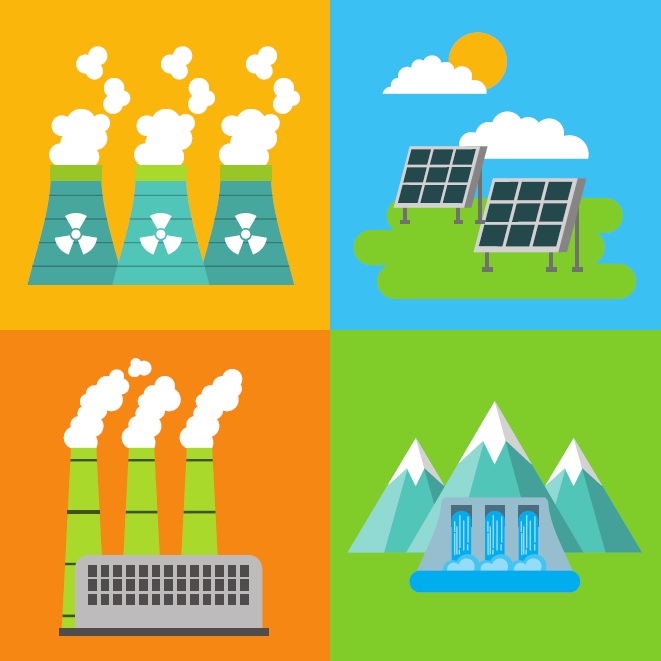The current global energy landscape faces significant challenges. Addressing the ever-increasing energy demands while mitigating the adverse effects of climate change on a warming planet is critical (IPCC, 2021). In this context, renewable energy emerges as a beacon of hope, offering a clean, sustainable, and potentially transformative alternative to traditional fossil fuels (IRENA, 2023).
1. What is Renewable Energy?
Imagine a source of energy that can be replenished naturally at human timescale, unlike finite resources like coal or oil. That's the essence renewable (IEA, 2023)! It encompasses various sources continuously renewed and harnished to generate electricity, heat, transportation fuels REN21, 2023). Imagine a source of energy that can be replenished naturally at human timescale, unlike finite resources like coal or oil. That's the essence renewable (IEA, 2023)! It encompasses various sources continuously renewed and harnished to generate electricity, heat, transportation fuels REN21, 2023). Imagine a source of energy that can be replenished naturally at human timescale, unlike finite resources like coal or oil. That's the essence renewable (IEA, 2023)! It encompasses various sources continuously renewed and harnished to generate electricity, heat, transportation fuels REN21, 2023).
2. Types of Renewable Energy
The diverse landscape of renewable energy includes:
- Solar energy: Capturing the power of the sun through photovoltaic panels to generate electricity (IRENA, 2023).
- Wind energy: Utilizing the wind's kinetic energy to rotate turbines and generate electricity (GWEC, 2023).
- Hydropower: Converting the energy of moving water, like in rivers and waterfalls, into electricity through hydroelectric dams (IEA, 2023).
- Geothermal energy: Extracting heat from the Earth's core to generate electricity or heat buildings (Geothermal Energy Association, 2023).
- Biomass energy: Converting organic matter, like wood or agricultural waste, into heat, electricity, or biogas (REN21, 2023).
- Ocean energy: Harnessing the power of waves, tides, and ocean currents to generate electricity (IEA Ocean Energy Report, 2023).
3. Benefits of Renewable Energy
- Combating Climate Change: By reducing reliance on fossil fuels and their associated greenhouse gas emissions, renewable energy plays a crucial role in mitigating climate change (IPCC, 2021).
- Sustainable and Reliable: Unlike finite resources, renewable energy sources are constantly replenished, ensuring long-term energy security and sustainability (IRENA, 2023).
- Environmental Benefits: Reduced air and water pollution associated with traditional energy sources creates a cleaner and healthier environment (REN21, 2023).
- Economic Opportunities: The development and deployment of renewable energy technologies create new jobs and stimulate economic growth (IEA, 2023).
- Energy Independence: Reliance on domestic renewable resources reduces dependence on imported fuels and enhances energy security (REN21, 2023).
4.How to contribute
- Supporting the transition: Advocate for policies that favor renewable energy development and adoption.
- Making informed choices: Consider switching to renewable energy providers for your home or business.
- Spreading awareness: Educate others about the benefits and potential of renewable energy.
5. Additional Resources
- Geothermal Energy Association. (2023, January 5). Geothermal energy 101.
- Global Wind Energy Council (GWEC). (2023, March 8). Global wind report 2022.
- International Energy Agency (IEA)





